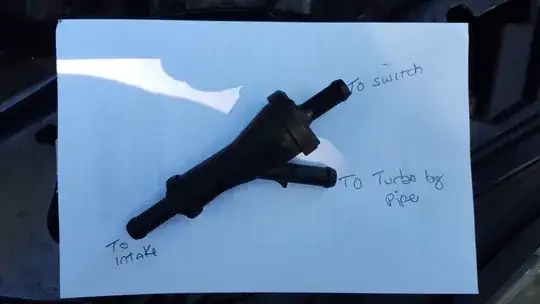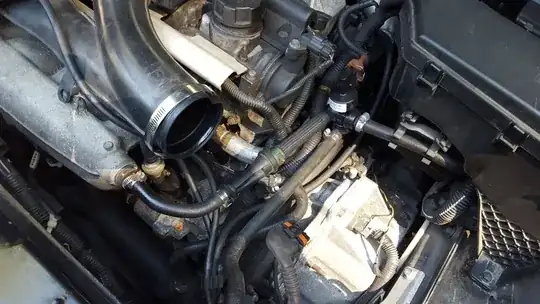My 2004 Volvo XC90 T6 2.9 has a Vacuum assist pump for the brake booster that should only come on briefly when the engine is cold and then not come on anymore. Mine comes on periodically all the time, mostly when I either step on the brake or take my foot off the brake and even when I don't touch the brake. I have replaced the power booster, master cylinder, valve switch, throttle body gasket and intake gasket. I don't see any cracks in the hose and I replaced all the clamps at the hose ends. The only other symptom I have which might not even be related is I have been getting a weird smell in the cabin that makes my nose tingle. I'm at my wits end but not giving up and I am hoping someone on here can assist me with identifying the problem. Thanks in advance for any feedback.
I took the one way valve that splits between the intake and cooling pipe for the turbo. The end that splits to the turbo cooling pipe does not allow any air in either direction. I'm assuming the connection to the turbo cooling pipe assists with the vacuum?
I replaced the booster vacuum ejector today and the problem with the booster pump kicking in every time I touch the brake continues. If I turn the key to the 2nd position without starting the car and touch the brake the pump kicks in, does that suggest that the problem exists between the peddle and the master cylinder? Could it be that I did not seat the O-Ring properly where the master cylinder meets the firewall?

